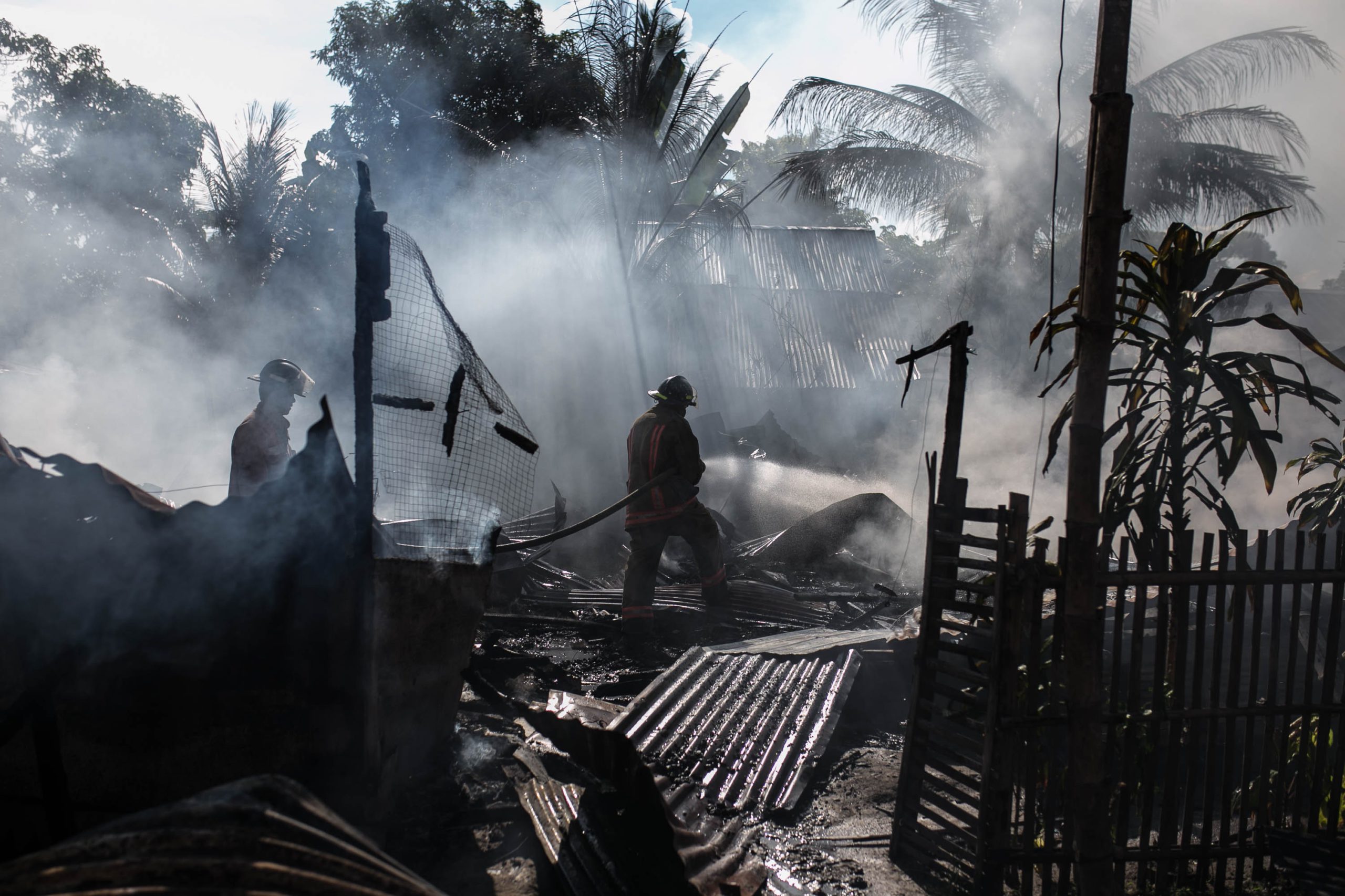No one wants an apartment fire. Fires are life-threatening, destructive, and just plain scary. Please consider this essential blog reading if you’re a landlord or a tenant. The primary purpose of this article is to inform and educate landlords and renters about apartment fires—the top causes, how to prevent them, and how to protect your personal and rental property.
Top 5 Most Common Causes of Apartment Fires
According to the National Fire Protection Association (NFPA), the five top causes of apartment fires are:
1. Cooking
In 2019 Thanksgiving was the top day for home cooking fires.
From 2015-2019 home fires were the second leading cause of home fire death, with cooking causing 49% of reported home fires, 20% of home fire deaths, and 42% of home fire injuries.
Home Cooking Safety Tips:
Here are some ways to prevent cooking fires in apartments:
- Don’t use the stovetop or stove if you’re sleeping or have had alcohol. In other words, don’t cook if you can’t be on high alert.
- Always stay in the kitchen and close to the stove when cooking—frying, broiling, boiling, or grilling. In addition, use a timer to remind you that you have something cooking.
- Keep items such as towels, curtains, and oven mitts away from the stovetop—they are flammable.
Actions to take if you have a cooking fire:
- Always a pot lid nearby to smother small fires. Place the lid on the fire, turn off the stovetop, and leave the room.
- If there is a fire in your oven, turn the oven off immediately and do NOT open the door.
2. Heating Equipment
The second leading cause of home fires and injuries is from heating equipment. Heating equipment fires are the third leading cause of home fire deaths. Between 2014-2018 fire departments responded to almost 50,000, 14%, of all reported home fires due to heating equipment. These fires caused 500 deaths, 1,350 injuries, and $1.1 billion in property damage.
One way to limit the fire risk of heating equipment, is to ensure that the property is well insulated and heated. Tenants should be comfortable with the installed heating elements and not need to resort to additional equipment to heat the unit.
Home Heating Equipment Safety Tips:
- Try not to use stationary or portable space heaters. If you can’t avoid this, keep anything that can burn (curtains, clothing, mattresses, etc.) at least 3ft from heating equipment such as a fireplace, wood stoves, and portable heaters
- Do not use extension cords with space heaters. Plug them directly into the wall
- Get your heating equipment & chimneys cleaned and inspected annually by a qualified professional. In addition, always inspect smoke alarms and carbon monoxide alarms to ensure they’re working correctly.
- Smoke alarms should be in and outside every room where people sleep and on every floor in your home.
- Carbon monoxide alarms should be placed outside every sleeping area, on every floor in your home, and wherever the law mandates.
3. Electrical
Electrical Equipment Safety Tips:
- Have all electrical work completed by a qualified professional
- A receptacle should only have ONE heat-producing appliance plugged into it at a time
- Makes sure prongs fit tightly into receptacles. The receptacles are old or loose due to excessive wear, so the prong from your equipment plug doesn’t fit properly.
- Don’t “daisy chain” your extension cords.
- Never run electrical cords across doorways or under carpets.
- Have a qualified professional add more outlets, so you don’t have to use any extension cords.
- Always use lightbulbs with the correct number of watts indicated on a sticker.
4. Smoking
Aside from smoke damage and odors, risk of apartment fires is another reason landlords may choose not to allow smoking on their property.
Cigarettes, pipes, and cigars started approximately 17,200 (5%) home structure fires between 2012-2016, according to the NFPA’s 2019 report. These fires caused 570 deaths (21%), 1,140 (10%) injuries, and $426 million (6%) in property damages.
Smoking Safety Tips:
- Smoke outside. Most injuries and deaths result from fires started inside.
- Keep cigarettes and all lighting materials away from children or locked up.
- Always put your cigarette out and away from anything that can burn
- Don’t throw your cigarette into any vegetation such as mulch, potted plants, or landscaping.
- Always extinguish your cigarette butts using water or sand before throwing them out.
- Never, under any circumstances, smoke around anyone using medical oxygen.
5. Candles
Between 2015-2019, candles started an estimated 7,400 home structure fires. The fires caused an annual average of 90 deaths, 670 injuries, and $291 million in property damage. Many landlords forbid the use of candles in their lease agreements. If you are allowed to burn candles in your apartment, do so with caution.
Candle Safety Tips:
- Put out all candles when you leave a room or go to bed
- Avoid using them in bedrooms or any room where someone may fall asleep
- Use candle holders that won’t tip over easily—sturdy
- Never use a candle if someone is using oxygen in the home
- Have flashlights and battery-powered tools rather than candles if the lights go out
- “Never leave a child alone in a room with a burning candle” (“Candle Fire Safety – Integrated Fire Systems”)
A Final Thought
Be responsible and heed the tips written here. Saving lives is always what matters. Taking chances to cut corners should not be an option. Renters should carry a renters insurance policy to minimize personal item losses. In addition, the landlord should also carry an insurance policy on the unit.
Suppose you’re a tenant and need help from your landlord regarding the heat, your outlets, cooking equipment, or anything that puts your life in danger or can cause property damage, reach out and speak with them. Don’t hesitate.
If you’re a landlord and your tenant is concerned about fire hazards, listen carefully and do what you can to keep the tenant and your property safe from fire.










